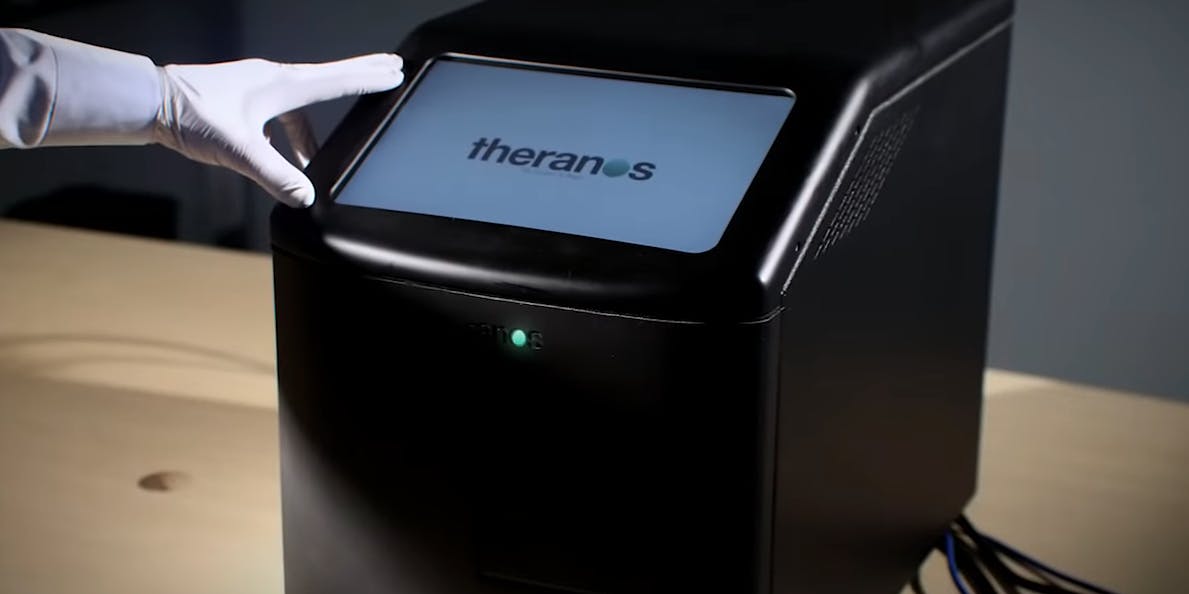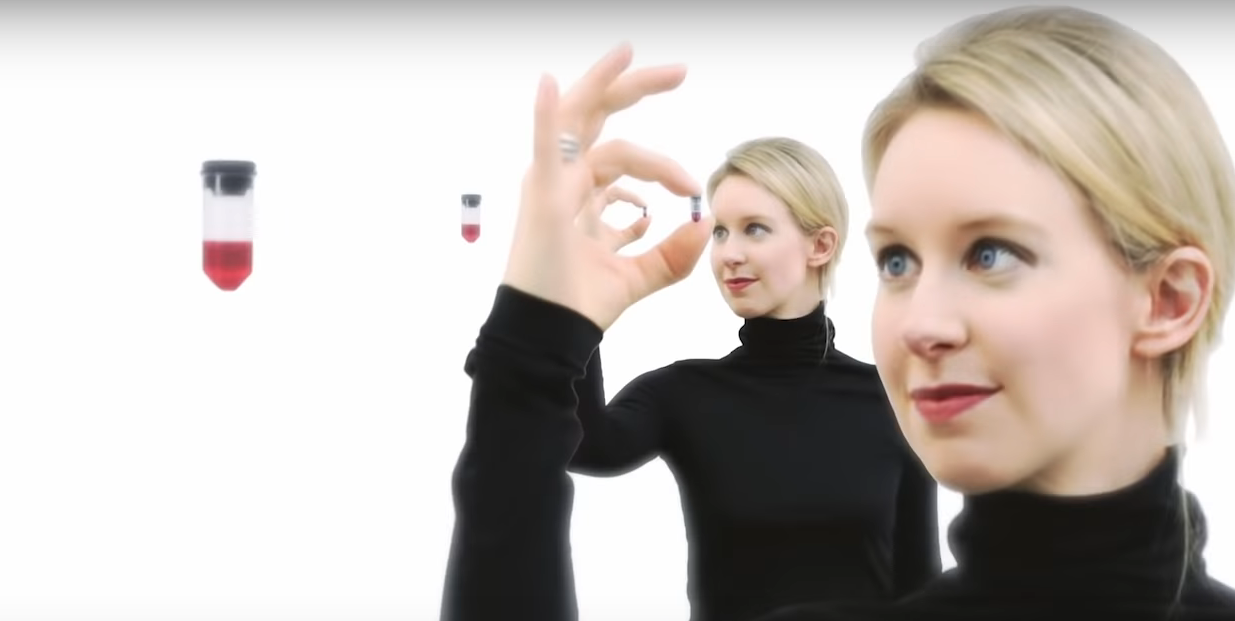Elizabeth Holmes is the inventor in the title of Alex Gibney’s new documentary. Or at least she played the part. Her invention was bogus, but she managed to invent a persona that outsized that fact. At least for a little while.

DIRECTOR: Alex Gibney
STREAMING: HBO
Alex Gibney’s doc on the Theranos scandal is informative but a bit bloodless.
The Inventor: Out for Blood in Silicon Valley, which debuted at SXSW, traces Holmes’ rise from Stanford dropout to Silicon Valley, where the then-19-year-old founded Theranos, a company that really only had one product but still managed to balloon into a $9 billion commodity. Gibney details how easily Holmes was able to get people onboard with just the pitch: a machine called Edison that would test blood for hundreds of diseases with one finger prick, replacing established labs like Quest Diagnostics and LabCorp.
Big-name investors like Jim Mattis, George Shultz, and Henry Kissinger were smitten with the idea—and Holmes. Kissinger says in a phone interview that she “is like a member of a monastic order.” Elsewhere, esteemed documentary filmmaker Errol Morris—whose work has hinged on finding the truth—films a commercial for Theranos and gushes to Holmes, “I’m a fan.” (Morris reportedly didn’t want to talk to Gibney about it.)
While Holmes was charming people above ground and getting them emotionally involved, engineers and scientists were trying to troubleshoot Edison. Gibney speaks with several former employees (two of whom would later become whistleblowers) who break down the increasingly paranoid atmosphere at Theranos, and how Holmes brushed off their concerns about the machine and its bogus results. Others highlight Holmes’ intensity: “She didn’t blink,” says a former receptionist. Gibney spends a lot of time showing closeups of her face, as if to say, “Hey, can you get a read?”
READ MORE:
- ‘Who Let the Dogs Out’ documentary obsessively explores the song’s origins
- ‘The Boy Band Con’ explores the seedy puppetmaster behind Backstreet Boys, NSYNC
- ‘Everybody’s Everything’ takes a meditative look at the chaos and reign of Lil Peep
But he doesn’t paint Holmes as a bloodthirsty monster. There’s room to suggest that she—a woman in a male-dominated field—was an idealist just trying her hardest to live up to the status of her hero, Steve Jobs. “I’ve been in black turtlenecks since I was 7,” she says in one interview. She tells the New Yorker’s Ken Auletta that she had a design for a time machine at the same age. Much has been made about Holmes’ voice, which many claim is also fake. If Holmes deepened her voice to be more respected in Silicon Valley, where men are allowed to exist and do business much more freely, you can’t necessarily blame her. But in the context of her long con, it takes on a different air. (The veracity of her voice is not addressed in the film.)
Silicon Valley is full of tech pitches with no science or substance behind them, and Theranos is one of the most egregious recent examples. The Inventor makes that clear, but it still has a few blind spots. Gibney talks to a phlebotomist who was duped, but the film lacks a bigger sense of how this fraudulent tech impacted users’ lives or health. What was Holmes thinking? Behavioral economist Dan Ariely offers the closest assessment, tied to an assertion that people can fool a lie detector with the right mindset. The doc suffers from not having an interview with Holmes or partner-in-crime/former Theranos president Ramesh “Sunny” Balwani, and not zooming out more to show how the scandal reflects the secretive mechanics of Silicon Valley. What happened to all the blood Theranos collected?
The Inventor does a lot of telling but not a lot of showing. We still don’t know Holmes any better at the end. Is she just an invention too?
Still not sure what to watch on HBO? Here are the best movies on HBO, the best HBO documentaries, and what’s new on HBO Go this month.



